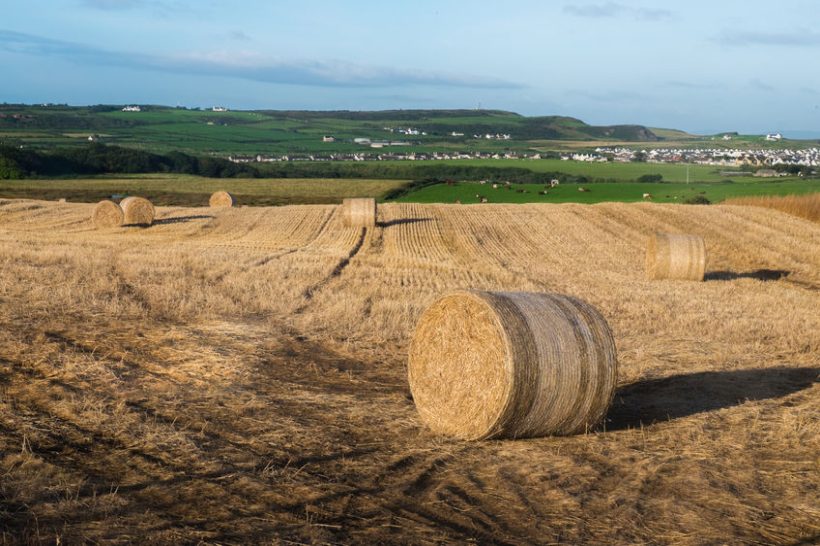
Structure and tax implications are important when buying a farm or farmland, Saffery Champness has advised in new guidance.
The market for rural land and farms is currently strong in England, bolstered by short supply, new entrants and existing farmers seeking to expand.
Whilst uncertainty continues, the bold who have the resources to do so may see this as a good time to invest or to expand.
In those circumstances, there are a number of tax implications to consider as well as the structuring of the purchase.
Martyn Dobinson, partner at accountancy firm Saffery Champness, says that first and foremost, it’s important to get the purchasing structure right.
"Holding assets in personal names – as a sole trader or partnership – is likely to be the most straightforward, but it isn’t uncommon to use either a limited company or limited liability partnership to acquire a farm or farmland as these structures offer protection from liability."
Companies are taxable in their own right with accounts filed at Companies House, which leads to a degree of public disclosure.
There can be tax advantages with income arising to the company being taxable at 19% as opposed to up to 45% if taxed on an individual.
Losses can also be carried forward by the company and offset against future profits – but thought must be given as to how to extract funds out of the company, Mr Dobinson says.
Where shareholders have access to profits and wish to extract cash, effective rates of tax may broadly equate to the additional rate of income tax on non-savings income.
For partnerships, partners are taxed on their share of profits at their marginal rates even if no income is withdrawn, and any losses should be available to reduce other taxable income although may be subject to restriction.
Partnerships do have unlimited liability although this can be protected by insurance, Mr Dobinson advises, and LLPs are treated similarly to limited companies in most respects with an annual Companies House filing requirement.
Income passes to the partners either on the basis of an agreed split or beneficial ownership of the partnership property.
A further consideration is whether assets such as land and property should be held on the partnership’s balance sheet or in the partners’ personal names.
This, and use of the land, will impact the overall Inheritance Tax position of the partnership, Mr Dobinson says.
Inheritance tax (IHT)
Before any purchase of land is agreed, the longer-term plans of the farm with the new acquisition in place might influence the way in which the purchase is structured and the overall IHT position in the future.
For instance, a purchaser may be thinking about passing on assets to future generations.
VAT
The VAT position of land and any associated buildings being purchased is important and potentially complex.
If assets have been ‘opted to tax’, the purchaser may wish to acquire an entity as a ‘going concern.’ If not, then the purchase price may be subject to VAT.
Lucy de Greef, senior manager at Saffery Champness says: “A farm with both an agricultural enterprise and residential properties may be ‘partially exempt’ for VAT purposes as it will be in receipt of both taxable and exempt income.
"VAT registration will allow some of the VAT incurred to be recovered, but expenditure in relation to the letting of the residential properties will not be recoverable.”
Capital allowances
The capital allowance position of any plant, machinery, fixtures and fittings should be reviewed prior to purchase and it may be beneficial for the vendor and purchaser to make a joint election that would allow the capital allowance ‘pools’ to be carried forward.
Mr Dobinson says: “Another consideration is whether any expenditure incurred on or after 28 October 2018 qualifies for the Structures and Buildings Allowance (SBA), and whether the purchaser would be able to claim any unclaimed SBA. This increased to 3% from 1 April 2020.”
Annual Tax on Enveloped Dwellings (ATED)
ATED presents a major downside to acquiring a farm within a company if residential property forms part of the holding. In this instance, an annual charge applies unless the property qualifies for available reliefs.
Ms de Greef comments: “ATED applies where shareholders or connected parties occupy any residential properties held by the company, even where a rent is being paid.
"Reliefs apply to commercially let properties let to third parties, and for farm workers, although a claim for relief must be filed annually.”
Stamp Duty Land Tax (SDLT)
This is paid when land or property is purchased, with different rates applying to residential, commercial and mixed-use assets.
Any purchase involving different asset classes can be complicated, particularly where the purchasing structure is a company.
Mr Dobinson says: “There is currently an SDLT holiday in place applying to the purchase of residential property until 31 March 2021. Completion prior to that should result in an SDLT saving.
"However, regardless of this if the purchaser already owns a residential property the 3% surcharge will still apply whether or not it is their primary residence.”
